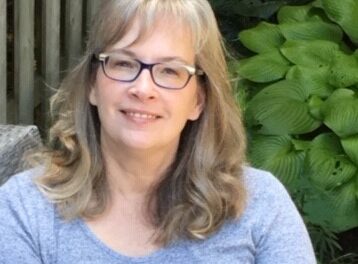
Assistant Managing Editor Bess Winter: Meditations on our disconnection from work abound, from the writings of Marx to the TV show Severance. In “Lighthouse,” work is inextricably linked to place: a place to which the speaker is a newcomer, with no ties to bind them to the landscape. The delicacy and simplicity of this poem–like the mending and stitchery of the “women’s work” it describes–belie its layers of emotional complexity. A lighthouse stands to beckon the speaker, but it’s unclear whether it’s a working lighthouse or simply a paean to the past.
Listen to Kenneth Tanemura read “Lighthouse”:
Lighthouse
1
Nineteenth century,
women’s work was spools,
clothespins, buttons, pins—
I came to this lighthouse town
a trailing spousal hire.
2
Imagine scraping paint
all day, or painting,
polishing brass—
tending the buoys
at sea, looking and looking.
3
I check the weather
on my iPhone—UV index
very high. Once they knew
only fair, light wind
from the south, hot.
Kenneth Tanemura teaches writing at Embry-Riddle Aeronautical University in Daytona Beach, Florida.











